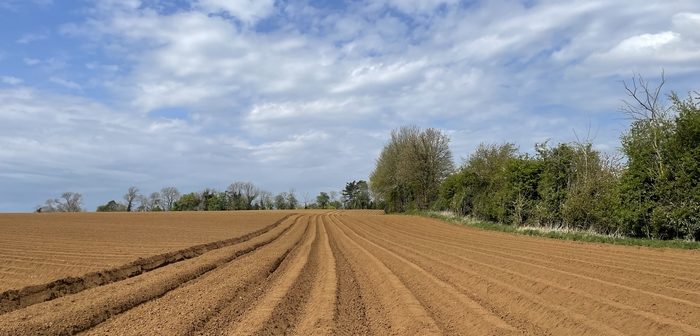With March rainfall figures once again below average, potato growers are being urged to assess their soil conditions and carefully weigh up their early season herbicide programs when planning the planting of potato crops this year.
FMC commercial technical manager Antonia Walker says it’s important to ensure that there is adequate moisture in the soil to enable the formation of good seedbeds. “Getting those all-important ridges is crucial for creating optimum growing conditions for your potato crop.”
The lack of rainfall over the last couple of weeks has meant that light, sandy soils have become dry, making planting conditions more challenging. “On the lighter soils it could be a cause of concern if the dry spell continues, especially in terms of soil preparations for planting. With it being so dry, some growers have even mentioned the possibility of having to irrigate before planting to facilitate better ridging up processes,” notes Antonia.
With reduced rainfall posing one challenge, fluctuating temperatures have also been seen across the country.
“One minute you have glorious sunshine with temperatures reaching 16 degrees, but this has typically been coupled with cold frosty mornings, which isn’t conducive for planting as soil temperatures are still too cold.”
Weed control options
With limited options for the control of emerged weeds in potatoes, Antonia recommends the use of Carfentrazone-ethyl (Shark).
“This is a good foundation to your broadleaved weed control programme in potatoes. Shark is particularly good at controlling polygonum species, but it can also control groundsel up to two cotyledons as well as being very strong on nettle and willowherb. Shark provides a solid base to your potato crop weed control programme and can be mixed with residual partners if required.”
She also highlights its flexibility due to the product being able to be used on seed and ware crops. With the bright sunny conditions we are experiencing right now PPO inhibitors can work rapidly and FMC recommends application from mid-morning to mid-afternoon in order to achieve optimum results.
“Having no varietal restrictions really is a bonus. It’s one less thing to worry about at a very busy time of the year,” concludes Antonia.




